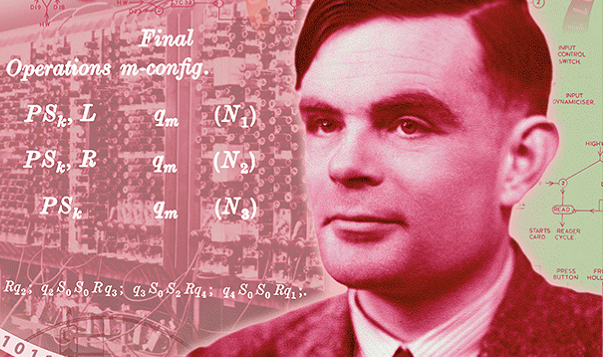Alan Turing unveiled as the face of the new £50 note
The pioneering mathematician, WWII codebreaker and LGBTQ icon will appear on Britain's most valuable banknote from from 2021.
By Will Stroude

Alan Turing has been unveiled as the face of the new £50 note.
The pioneering mathmetician and LGBTQ icon, who is regarded as one of the fathers of modern computer science and who was pivotal in cracking the Nazi Enigma code during the Second World War, was selected for the honour from a shortlist of almost 1000 British scientific figures.
He will appear on Britain’s hightest-value banknote from 2021, when new polymer notes go into circulation.
The Bank of England has released a concept image of the new note and confirmed that the design will use the famous 1951 picture of Turing by Elliott & Fry which is part of the Photographs Collection at the National Portrait Gallery.

The design will also include the mathmetician’s signature, birthday in binary code, and a quote he gave to The Times newspaper on 11 June 1949 which reads: “This is only a foretaste of what is to come, and only the shadow of what is going to be.”
Mark Carney, Governor of the Bank of England, commented: “Alan Turing was an outstanding mathematician whose work has had an enormous impact on how we live today.
“As the father of computer science and artificial intelligence, as well as war hero, Alan Turing’s contributions were far ranging and path breaking. Turing is a giant on whose shoulders so many now stand.”
Born in London in 1912, Turning went on to study at Cambridge before becoming a key figure in the breaking of German ciphers at Bletchley Park during the Second World War. His work cracking the German Enigma code is widely credited with bringing the war to a more swift end.

In 1952, Turing was convicted of gross indecency because of his homosexuality, pleading guilty and opting for a course of hormone treatments that effectively amoonted to chemical castration rather than being imprisoned. He was also immediately barred from working for the British security services.
Turing died just two years later, at the age of 41, as a result of cyanide poisoning. His death was ruled as a suicide, but in recent years some have argued that it may have been accidental, owing the the chemical experiments he was carrying out at his home at the time.
In 2009, then-Prime Minister Gordon Brown apologised for the British government’s “appalling” treatment of Turing. In 2013, Queen Elizabeth II signed a pardon for Turing’s conviction, an act which led to the introduction three years later of ‘Turing’s Law’; the process by which gay men convicted under Britiain’s historic anti-gay laws can apply for an official pardon.
